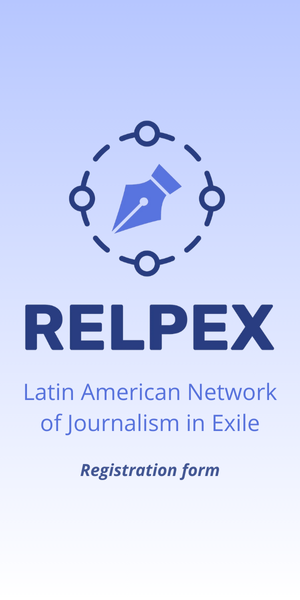Miami (March 14, 2025) - The Inter American Press Association (IAPA) concluded its mission in Peru and alerts about a serious deterioration of press freedom and freedom of expression in the country, amidst a context of political and institutional crisis that threatens to worsen in the lead-up to the general elections scheduled for April 2026.
The IAPA delegation found that growing hostility towards independent media, judicial persecution of critical journalists, and systematic use of disinformation and social media attacks create an hostile environment for the press and directly affect the citizens' right to be informed.
The delegation was led by IAPA President José Roberto Dutriz, CEO and General Director of La Prensa Gráfica (El Salvador), along with former IAPA President Roberto Rock, director of La Silla Rota (Mexico); the IAPA's second vice president and chairman of the Committee on Freedom of the Press and Information, Carlos Jornet, director of La Voz del Interior (Argentina), and the organization's executive director, Carlos Lauría.
During three days of visit in Lima, the IAPA mission held meetings with the President of the Judiciary, Janet Tello Gilardi; the Attorney General, Delia Espinoza; the President of Congress, Eduardo Salhuana, and the Prime Minister, Gustavo Adrianzén. The IAPA attempted to arrange a meeting with President Dina Boluarte, but her press advisors did not respond to repeated requests.
Additionally, the delegation met with journalists, media executives, lawyers representing reporters who had been sued, civil society organizations, and members of the academia. In a sign considered significant at this stage, the President of the Judiciary signed the Chapultepec and Salta II declarations, which defend freedom of expression and the press in traditional and digital environments, respectively.
Main concerns identified by the mission:
• Increased judicial persecution against journalists: The criminalization of journalism has intensified through defamation lawsuits and notarized documents, mechanisms commonly used to silence investigations into corruption and abuse of power. Lawsuits by political leaders and other public figures against journalists for alleged offenses against their reputation are filed in criminal courts rather than civil courts, as required by international standards. In other cases, they use baseless accusations of money laundering. The delegation reported incidents of journalists' communications being monitored without proper notification, as well as attempts to breach the confidentiality of journalistic sources.
• Hostility and stigmatization from the Executive: President Dina Boluarte, ministers, mayors, and other political figures have adopted a confrontational and belligerent discourse against media and journalists, aiming to discredit their work and making unfounded accusations of destabilization attempts. Particularly intense are the attacks launched against critics by Lima's mayor, Rafael López Aliaga, sometimes coinciding with street and social media campaigns.
• Increased threats from actors linked to organized crime: Drug trafficking, illegal mining, illegal logging, and other criminal activities—worth billions—exert constant pressure on journalists and media in vast regions of Peru, especially in the Amazon, bordering Ecuador, Colombia, and Brazil. There is a risk that local journalistic sources may disappear, and information deserts may expand. In January, journalist Gastón Medina was murdered in the Ica region, with no significant progress in the investigation to date. Meetings highlighted the passive and even complicit role of police forces and regional leaders in attempts to silence journalistic investigations. It was also noted that organized crime finances political campaigns to gain a foothold in the Congress and other centers of power. In this context, hostile expressions against the press from the Executive and Congress could encourage new threats and attacks.
• Restrictions on access to public information: Increasing state opacity hampers investigative journalism and limits citizens' right to access public interest information. Restrictions on journalistic work at official events and public spaces are common.
• Bias in state media: Several interviewees expressed concern over the loss of media pluralism within the National Institute of Radio and Television, Peru's most geographically extensive media.
• Use of disinformation and digital attacks: Proliferation of smear campaigns on social media, along with coordinated troll and cyberattacks, seek to discredit independent media and critical journalists by publishing private information and harassing female journalists. Police passivity and certain prosecutors' inaction have allowed politically funded violent groups to operate for years, conducting harassment, threats, and attacks on journalists and media.
• Attacks by media with a journalistic profile: They focus on spreading disinformation narratives and launching personal attacks and smear campaigns against investigative journalists and media outlets, distorting public discourse. False information is often used to support groundless legal actions.
• Legislative bills threatening press freedom: Congress repeatedly pushes initiatives that aim to restrict journalism instead of strengthening democratic guarantees. For instance, journalists and organizations cite a recently passed law that restricts freedoms of association, thought, and political participation of civil organizations. Under the pretext of overseeing foreign funds, the law imposes restrictions that could affect independent entities and media relying on external funding for investigative journalism.
During their visit, the IAPA also delved into the situation of renowned Peruvian journalists facing judicial harassment and systematic attacks due to their investigative work. Among them, Gustavo Gorriti, director of IDL-Reporteros, has been harassed by an extremist group known as "La Resistencia," along with judicial harassment and smear campaigns due to his investigations on corruption. Rosa María Palacios, columnist for La República newspaper, faces constant harassment by the same group and restrictions in carrying out her work. Paola Ugaz, investigative journalist and correspondent for Spain's ABC newspaper, has been targeted with lawsuits, including baseless accusations of money laundering, violation of communications confidentiality, and defamation campaigns to discredit her.
The latest edition of the Chapultepec Index, compiled by the IAPA, confirmed a significant setback in Peru's freedom of expression and press freedoms. The country dropped from 12th to 16th place out of 22 countries, entering the category of "high restriction" on press and expression freedoms.
The IAPA President José Roberto Dutriz warned about the impact of this deterioration on the country's democratic future: "The political degradation we are witnessing in Peru directly impacts press freedom and the citizens' right to receive independent information. Without free press, ensuring full democracy is impossible. The international community must remain vigilant and demand respect for fundamental freedoms in the country," Dutriz concluded.
Carlos Jornet emphasized concern that "ahead of the upcoming elections, hostility towards journalism could intensify, creating an even more dangerous environment for journalism and affecting the transparency of elections. The Peruvian government has a responsibility to ensure journalism can be practiced without pressure or threats, as the world begins to look at the country with concern," Jornet pointed out.
The IAPA is a non-profit organization dedicated to defending and promoting freedom of the press and expression in the Americas. It comprises more than 1,300 publications from the western hemisphere and is based in Miami, Florida, United States.











